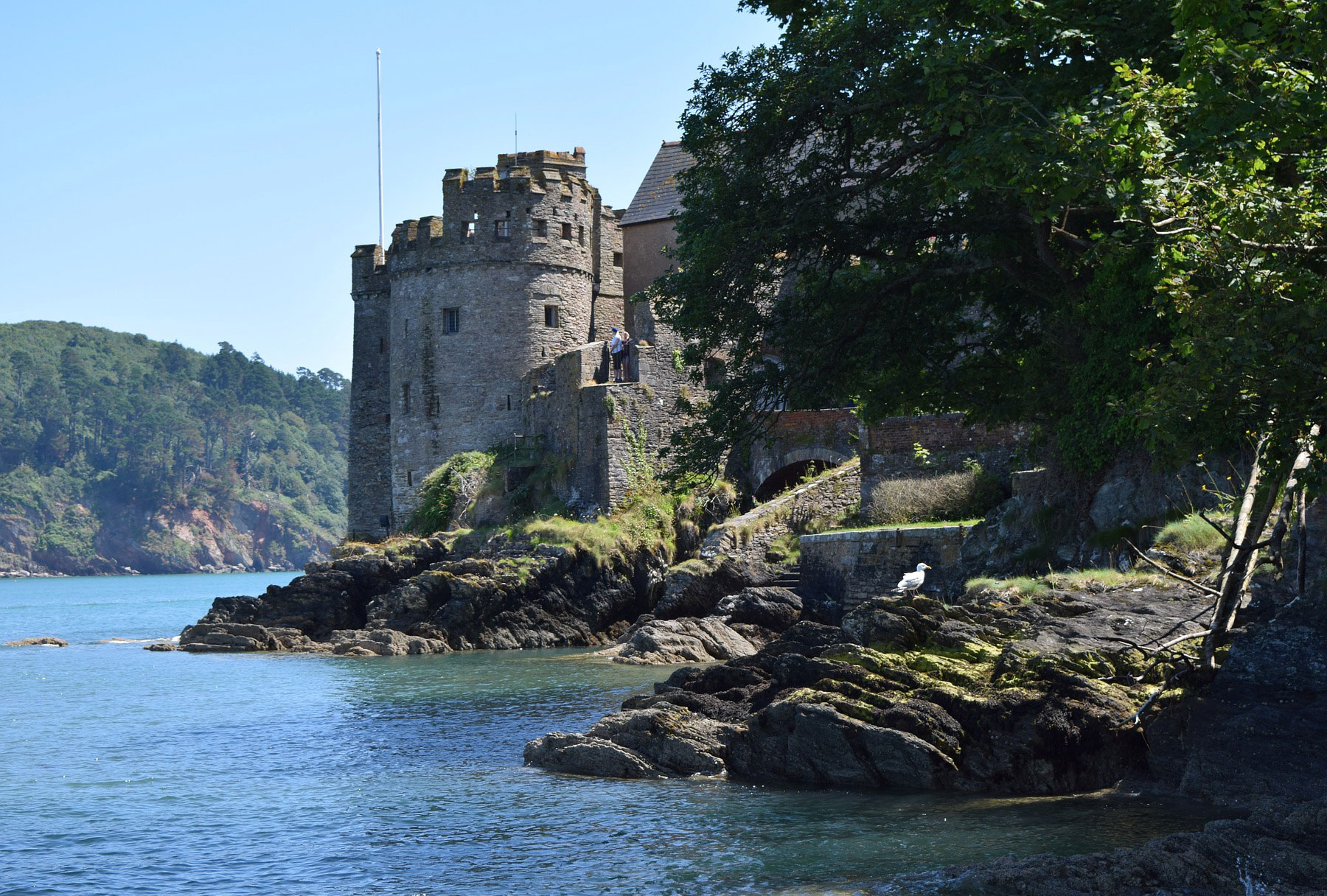Cultural Heritage and Resource Management
Apply onlineCultural Heritage and Resource Management considers the wider place of heritage management in contemporary society and offers you the chance to undertake your own projects on a range of different subjects. You investigate the theory and practice of cultural heritage and resource management from both a British and a global approach.

Course overview
The course offers a perspective which, although grounded in UK heritage practice, is also situated within a wider global context and offers industry placements and project work abroad. Our current industry links include the National Trust, Winchester Cathedral, Hampshire Cultural Trust, Winchester Military Museums (particularly the Gurkha Museum) and Winchester Heritage Open Days and these offer unrivalled opportunities to develop your employability profile. Students can also work on internal research projects, such as decolonising Caribbean archives and revealing the intangible heritage of indigenous plant use.
Core modules include Cultural Heritage and Resource Management: An Introduction, Issues in Cultural Heritage, Intangible Heritage and Employability in Heritage Organisations. A placement module, based locally or abroad, allows you to gain practical training in the industry. Placements may involve work experience in a museum, gallery, historic property or archaeological unit/research project.
Teaching comes from experts with specialisms in museums and galleries, cultural tourism, national, local and global heritage organisations, entrepreneurship, archives, libraries, and archaeological units. There is also a dissertation, based on your original research, completed with full support and guidance from a tutor.
Find out more about the School of History, Archaeology and Philosophy
What you need to know
Course start date
September
Location
On campus, Winchester
Course length
- 1 year full-time
- 2 years part-time
Apply
Apply online
Typical offer
A first or second-class honours degree
Fees
From £9,550 pa
Why Winchester
- Combine and develop a range of interests across the heritage spectrum
- Complete projects and placements in the UK and abroad
- Apply cultural theory and skills to real-world resources
Course details
Suitable for applicants from:
UK, EU, World
Work placements
Students are required to undertake placement work (to the equivalent of 200 hours) in one or more heritage environments chosen in collaboration with the Programme Leader. Recent placements have included work at the Arthurian Centre in North Cornwall; Portsmouth Historic Dockyard; the Royal Palaces; Nokalakevi; and Georgia and Barbados Museums.
Learning and teaching
Start date: September
Teaching takes place: Daytime
Modules are delivered through workshops and seminars with presentations (poster and oral), reflexive learning strategies (such as blogs and diaries) and more formal essays. A placement module, based locally or abroad, allows students to gain practical training in the industry. Placements may involve work experience in a museum, gallery, historic property or archaeological unit/research project.
Location
Taught elements of the course take place on campus, in Winchester.
Assessment
Our validated courses may adopt a range of means of assessing your learning. An indicative, and not necessarily comprehensive, list of assessment types you might encounter includes essays, portfolios, supervised independent work, presentations, written exams, or practical performances.
We ensure all students have an equal opportunity to achieve module learning outcomes. As such, where appropriate and necessary, students with recognised disabilities may have alternative assignments set that continue to test how successfully they have met the module's learning outcomes. Further details on assessment types used on the course you are interested in can be found on the course page, by attending an Open Day or Open Evening, or contacting our teaching staff.
Feedback
We are committed to providing timely and appropriate feedback to you on your academic progress and achievement in order to enable you to reflect on your progress and plan your academic and skills development effectively. You are also encouraged to seek additional feedback from your course tutors.
Further information
For more information about our regulations for this course, please see our Academic Regulations, Policies and Procedures section.
Modules
Please note the modules listed are correct at the time of publishing. The University cannot guarantee the availability of all modules listed and modules may be subject to change. The University will notify applicants of any changes made to the core modules listed. For further information please refer to winchester.ac.uk/termsandconditions
Modules
The aim of this module is to systematically analyse the variety of cultural heritage (archaeological sites, buildings, objects, landscapes and intangible heritage) from around the world, examining what cultural heritage means to ordinary people, investigating its history and exploring the theoretical debates that frame the concept. The unit will also cover a wide range of subjects relevant to working in the heritage/ resource management sector, with an emphasis on the use and role of digital media in heritage, the process of learning in heritage interpretation and also developing strong professional knowledge and skills.
In addition to developing the particular knowledge relating to given field of investigation, postgraduate students need both to reflect on the nature of that discipline, to identify its place in the range of human areas of intellectual investigation, to identify particular methods and skills relevant to their disciple from a wide range of methods and skills, to develop those skills and to begin their implementation in a significant and agreed topic of research. Students also use information technology to create bibliographies, make appropriate use of online resources, and to access research materials; they explore appropriate modes of research‐topic identification, hypothesis formation, and methodology selection; they practice techniques for moving from note taking, and data‐collection to the outlining, sectioning, writing‐up and presentation of the research project materials.
In this module local and national issues in cultural heritage and management, which have been outlined in the introductory module, are placed within a more international context. Special attention attaches to the history and development of CHM and museum strategies across the western world and the developing world. Legislation, protection and national debates and problems in CHM are discussed using a case study approach and with lecturers who have experience drawn from across the world and from a range of disciplines (museums, education, conservation, archaeology). Special attention is paid to indigenous peoples’ rights, heritage and genocide, social justice, social memory and representation, and complex and advanced ethical issues are critiques and discussed, and approaches to de-colonisation of heritage practice are foregrounded here.
As well as caring for and presenting sites and collections to the public, heritage organisations also operate as businesses. They have to work to budgets, project manage, and plan for their futures, as well as comply with the law and local and national strategic policies. Heritage organisations also have their own sector specific management issues. Students will link theory to practical examples, and will work through the unit towards creating a document such as a forward plan which brings together budgets and sector specific knowledge to create a detailed report. They will gain a wide range of transferable skills that will be relevant to working in heritage and many other jobs in the private, public and third sectors.
The placement forms a vital component of this programme and enables you to gain valuable experience within the heritage sector. Placements are equivalent to 196 hours of study and are undertaken typically in the second semester (full time students) and in the second semester of year two for part-time students. The module is assessed formatively by ongoing diaries and blogs and a final report which encourages you to critically assess your own personal development. It is important that all parties read, understand and sign off the agreement which formally sets the term of reference for the placement, and that the terms of the most recent University Policy on work-based learning volunteering and placements is fully adhered to.
UNESCO (United Nations Educational, Scientific and Cultural Organization) maintains lists of both World Heritage Sites (i.e. tangible cultural heritage such as Stonehenge, and the Pyramids) and Intangible Heritage. UNESCO states that cultural heritage includes traditions or living expressions inherited from our ancestors and passed on to our descendants, such as oral traditions, performing arts, social practices, rituals, festive events, knowledge and practices concerning nature and the universe or the knowledge and skills to produce traditional crafts. This module will explore intangible cultural heritage as an important factor in maintaining cultural diversity in the face of growing globalisation and, through a series of case studies, will look at the varied ways in which intangible heritage is practised and performed around the world.
Students will pursue independent study and research, culminating in a dissertation of between 19,000 and 21,000 words. This is the equivalent of three taught modules and will involve detailed input and support by a named supervisor appointed mid-way through semester one as part of the Research methods and skills module.
Entry requirements
Normally a first or second-class Honours degree or professional experience in the area of study. The MA in Cultural Heritage and Resource Management (CHARM) is run from the Archaeology Department but has broad appeal to applicants from all backgrounds. Previous applicants have included historians, artists, linguists and students from other walks of life. No prior knowledge is assumed, but an interest in the human (cultural) past in all its diversity, and by extension an interest in how people approach and appreciate their past, is essential.
Course enquiries and applications
For enquiries, send us a message.
Applications need to be submitted before the published date on the website. Late applications can be accepted throughout the remainder of the application year. For more information see our How to apply for a postgraduate degree section.
If English is not your first language: IELTS 6.0 overall with a minimum of 5.5 in writing or equivalent.
If you are living outside of the UK or Europe, you can find out more about how to join this course by emailing our International Recruitment Team at International@winchester.ac.uk.
2026/2027 Course Tuition Fees
| UK / Channel Islands / Isle of Man / Republic of Ireland |
International |
|
|---|---|---|
| Full-time | £9,775 | £17,450 |
Additional tuition fee information
If you are a UK student starting your degree in January / September 2026, the first year will cost you £9,775**.
If finance is a worry for you, we are here to help. Take a look at the range of support we have on offer. This is a great investment you are making in your future, so make sure you know what is on offer to support you.
**The University of Winchester will charge the maximum approved tuition fee per year.
Additional costs
As one of our students, all of your teaching and assessments are included in your tuition fees, including, lectures/guest lectures and tutorials, seminars, laboratory sessions and specialist teaching facilities. You will also have access to a wide range of student support and IT services.
There might be additional costs you may encounter whilst studying. The following highlights the mandatory and optional costs for this course:
Optional
Core texts
Multiple copies of core text are held within the library and e-books are identified where possible, however due popularity of some books, there will not be enough availability for every student. It is advised that students look into purchasing second-hand copies. Indicative cost is £100.
Field trip
Students have the option to attend optional field trips (eg. a trip to London). Indicative cost is £50.
Mandatory
Placements
There may be costs associated with travel for the placement module, but these costs vary depending on the location of the placement. Support is available from the Faculty. Costs vary depending on location.
SCHOLARSHIPS, BURSARIES AND AWARDS
We have a variety of scholarship and bursaries available to support you financially with the cost of your course. To see if you’re eligible, please see our Scholarships and Awards.
CAREER PROSPECTS
The course prepares you for a range of career choices. On completion, graduates often work in heritage, museums, galleries, education, outreach, libraries, archives, and archaeological units.
OUR CAREERS SERVICE

"Winchester offered me the chance to focus on my research interests, while benefitting from valuable contact time with lecturers and other students through practical taught sessions."

